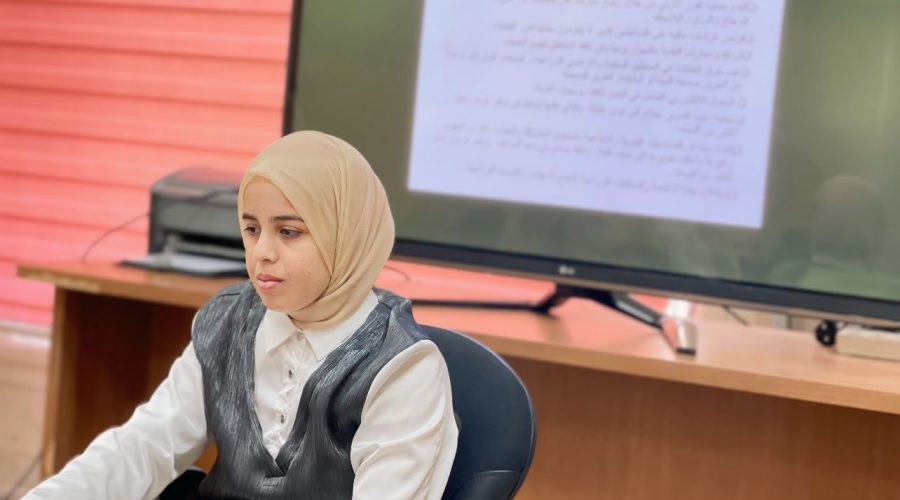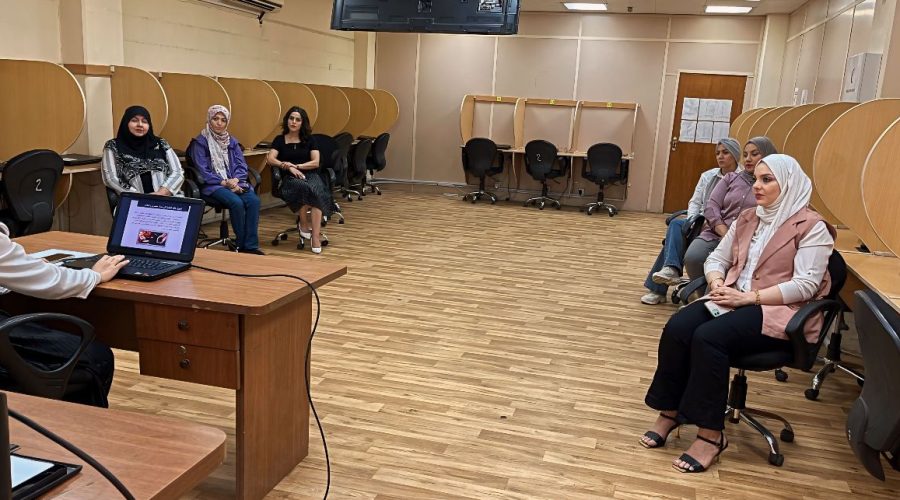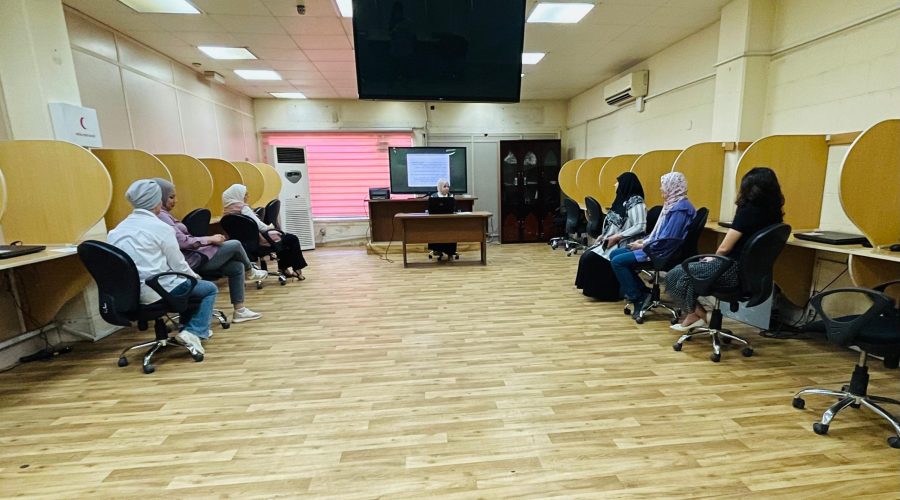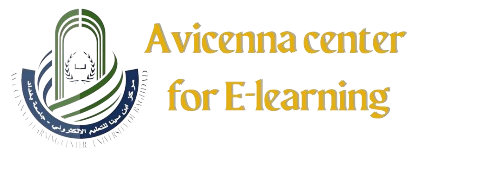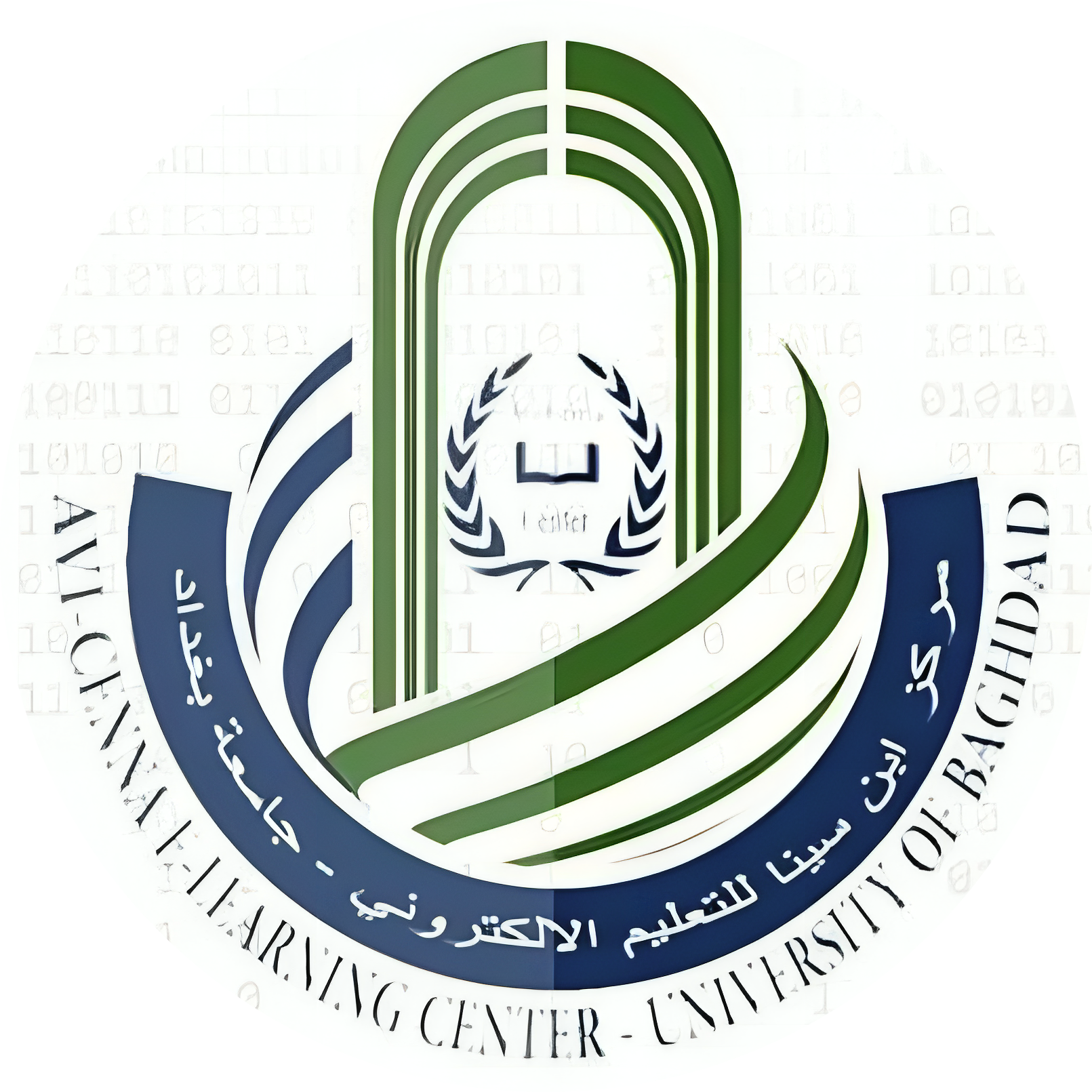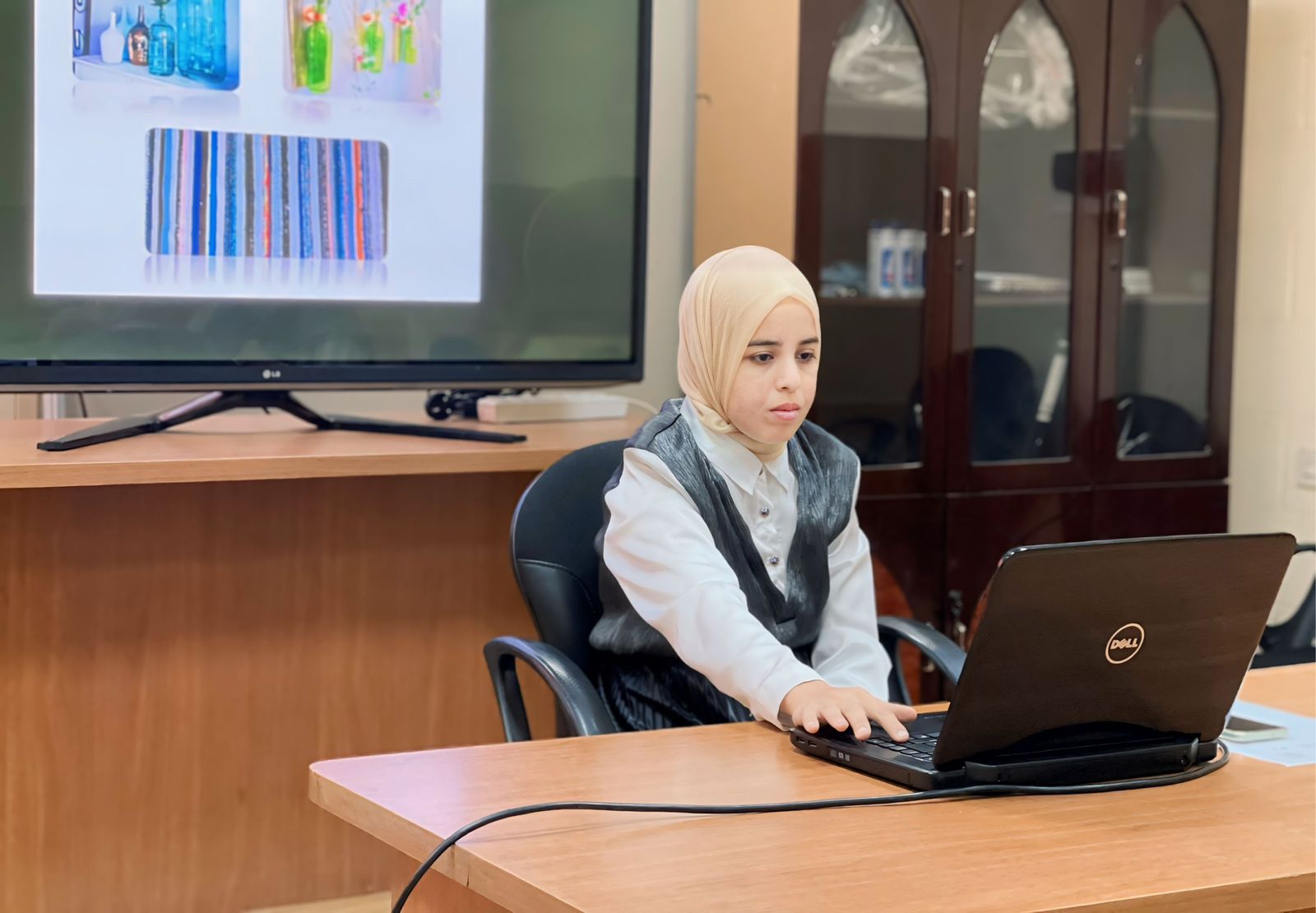In line with the directives of the Women’s Affairs Department at the Ministry of Higher Education and Scientific Research to promote green education, the Avicenna Center for E-Learning at the University of Baghdad held a scientific workshop titled “Waste Recycling and Its Role in Supporting Sustainable Development” on Thursday, October 17, 2024. The workshop was presented by Agricultural Engineer Ayat Mahmoud Ibrahim.
The workshop aimed to introduce the concept of waste, its types, and its environmental risks. Ms. Ibrahim explained that waste includes all items that no longer have a use, such as kitchen waste, sewage, and more, classifying waste into categories like ordinary, commercial, industrial, medical, chemical, and agricultural.
The presenter highlighted the significant environmental risks posed by waste, particularly to water bodies, and the critical role recycling plays in mitigating these risks. By recycling plastics, metals, and chemicals, it is possible to reduce pollution in lakes, rivers, and oceans, helping preserve biodiversity and ensuring the sustainability of water resources for future generations.
Ms. Ibrahim discussed how waste leads to soil and water pollution, harmful gas emissions, and the degradation of natural landscapes. Recycling, however, helps reduce pollution, conserve natural resources, generate economic returns, combat global warming, and create job opportunities, all of which support sustainable development.
She also outlined the challenges facing recycling efforts, such as the significant financial investments required and the fact that recycled products may not always match the quality of new ones.
The workshop concluded with proposed solutions, including the introduction of mandatory waste management laws, providing bins for waste sorting at the source, constructing recycling plants, and converting waste into energy. Additionally, the use of recycled materials in construction and agriculture was encouraged, as well as supporting creative and handmade industries. The presenter also advocated for replacing single-use items with environmentally friendly alternatives and utilizing agricultural waste to produce feed and fertilizers.
Public Information and Liaison Unit
Photography: Lara Ghassan Shayea
